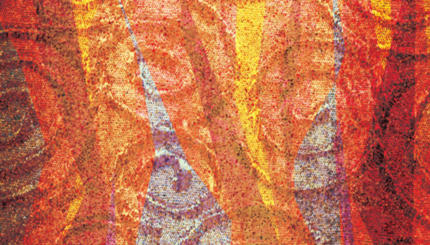Commentary on Parashat Beha'alotcha, Numbers 8:1-12:16
In this week’s Torah portion, Aaron is commanded to light the menorah, the Levites are purified for their service in the Tabernacle, and Pesach (Passover) is celebrated for the first time since the Jews left Egypt. God then commands the Jews to journey further into the desert–the people follow the divine cloud that rose from above the Tabernacle, and they set up camp where the cloud rests.
During the course of their journeys, the people rebel against God, complaining that they have grown tired of the manna that is sent from heaven, and instead desire meat. In response, God sends a rain of quail, but it is followed by a wave of fire that sweeps through the camp and kills those who had rebelled and spoken against God. At the end of the portion, Miriam is punished by God for speaking pejoratively about her brother Moses.
This rich portion incorporates diverse precepts within Judaism, and thus offers many perspectives on how to lead a meaningful life. Just from the summary of events above, we see that God leads the Jewish people in multiple ways: through the use of natural wonders, by establishing the Torah as a guide, and by teaching the importance of respectful behavior toward others. These modalities represent three of the myriad ways to find meaning in life and to develop a personal connection with community and the divine presence.
Throughout the parsha, the Jews are physically led by the Ark of the Covenant, which held the tablets of the Ten Commandments and would travel in front of them. In this way, both literally and figuratively, the Torah served as the people’s guide in the desert. In our lives as well, the Torah can serve as a guide through the challenges we face.
With your help, My Jewish Learning can provide endless opportunities for learning, connection and discovery.
Nature is also a way for the Jewish people to connect to God. In the desert, it was a cloud (which would appear as a pillar of fire at night) that led them through the desert and indicated when to continue and when to stop and set up camp. And just as God communicated through wonders of nature in the desert, we also form a connection to God through our appreciation of God’s power and magnificence as it is demonstrated through nature. Many find our world’s natural beauty to signify the existence of a higher being.
The important connection between people and their community is another guide for human behavior, and this week’s Torah portion gives directions for meaningful interpersonal relationships. The idea of welcoming the stranger, which is such a powerful aspect of Judaism, is mentioned here: “There shall be one law for you, whether stranger or citizen of the country” (Numbers 9:14). We see that all people are subject to one law and deserving of respect and consideration–but at the same time, they must also take on the responsible behavior necessary to be a productive member of a community.
Another aspect of being part of the community involves being content with one’s lot in life. When ungrateful individuals ignored God’s bounty, complaining about the manna and demanding meat, God taught a violent lesson in appreciating all that has been provided.
In addition, when Miriam and Aaron speak badly about Moses regarding his choice of a bride and their perception that he is taking all the credit for his close relationship with God, God strikes Miriam with a skin disease as a punishment for this lashon hara (gossip or slander). Although she is a great leader herself, Miriam is taught that God will not accept her speaking badly about Moses–even if it doesn’t hurt Moses personally. We see that all individuals, no matter who they are or what kind of relationship they enjoy with others, are expected to use only respectful words when speaking of other members of the community.
Different people find various paths to achieving meaning in their personal lives and to contributing to the community in which they live. Three of these paths are explored in this week’s parsha: Torah study (learning, teaching, scholarship), connection to the natural world (environmentalism, the arts, outdoor activities), and the fostering of respectful human relationships (social work, counseling, bringing up a strong, loving family, or simply being a good friend). These are among the paths that lead to a rich life, though there are many others as well. Ultimately, the path leading to deeper meaning is unique to each individual.
Reprinted with permission from the UJA-Federation of New York.
parsha
Pronounced: PAR-sha or par-SHAH, Origin: Hebrew, portion, usually referring to the weekly Torah portion.
Torah
Pronunced: TORE-uh, Origin: Hebrew, the Five Books of Moses.


